Tips For Using Automotive Spray Paint Like A Pro
Ellie Moore
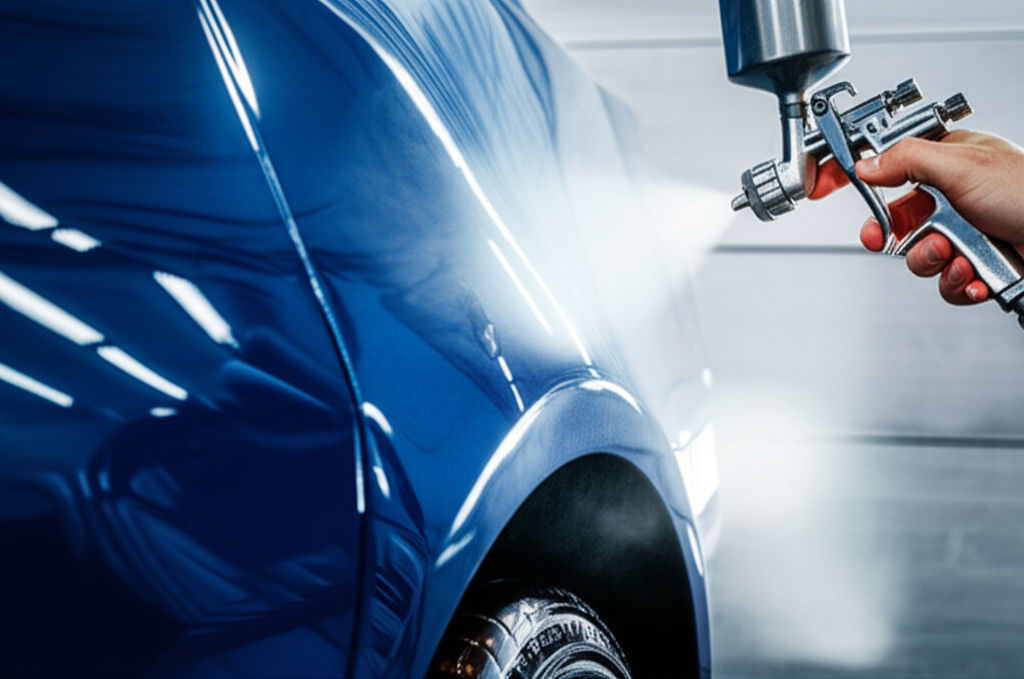
Photo: Master automotive spray painting! Get pro tips for flawless DIY car paint jobs, from meticulous prep to perfect technique. Save money, get showroom results.
Tips for Using Automotive Spray Paint Like a Pro: Achieve a Flawless Finish Every Time
Transforming your vehicle's appearance with a fresh coat of automotive spray paint can be a rewarding DIY project, offering significant cost savings compared to professional body shops. However, achieving a truly professional spray painting finish requires more than just pointing and spraying. It demands meticulous preparation, precise technique, and a keen eye for detail. This comprehensive guide will equip you with the car paint tips and strategies needed to elevate your DIY car paint projects from amateur attempts to showroom-quality results.
The Foundation of Flawless Finish: Preparation is Key
The secret to any outstanding paint job, especially with auto paint, lies in the preparation. Skipping or rushing these crucial steps will inevitably lead to a subpar finish that chips, peels, or looks uneven. Think of it as building a house; a strong foundation is essential for a lasting structure.
Why Surface Preparation Matters (and How to Do It Right)
Proper surface preparation ensures optimal paint adhesion and a smooth, uniform base for your new car spray paint. It's the most time-consuming part of the process, but also the most critical.
-
Cleaning is Paramount: Before any sanding begins, thoroughly clean the area you intend to paint. Use automotive soap and water to remove dirt, grime, and debris. For tougher contaminants like wax, grease, or oil, a dedicated degreaser or wax and grease remover is essential. Any lingering impurities can prevent the paint from adhering properly, leading to defects like fisheyes or peeling. Ensure the surface is completely dry before moving on.
-
Sanding for Adhesion and Smoothness: Sanding creates the necessary "tooth" for the new paint to grip onto, and it smooths out imperfections. Start with a coarser grit sandpaper (e.g., 400-600 grit) to remove old paint, rust, or deep scratches, then progressively move to finer grits (e.g., 800-1500 grit) to achieve a smooth, uniform surface. For larger areas, consider using a sanding block to ensure even pressure and a flat surface. After each sanding stage, wipe down the surface with a tack cloth to remove all dust and particles.
-
Masking Off: Precision Protection: Protect any areas you don't want painted, such as windows, trim, door handles, and mirrors, using high-quality painter's tape and plastic sheeting or newspaper. Take your time with this step, as clean, crisp lines are a hallmark of a professional job and prevent annoying overspray.
Choosing the Right Environment: Location, Location, Location
The environment in which you spray paint significantly impacts the final outcome.
- Ventilation is Non-Negotiable: Automotive spray paints contain volatile organic compounds (VOCs) and other chemicals that can be harmful if inhaled. Always work in a well-ventilated area, ideally a dedicated spray booth or outdoors on a calm day. If working indoors, ensure good airflow with fans and open doors/windows.
- Dust Control is Crucial: Dust is the enemy of a smooth paint finish. Choose a clean, dust-free environment. Avoid painting on windy days, which can kick up dust and debris onto your wet paint. You might consider wetting down the floor around your work area to help settle dust.
- Temperature and Humidity: Aim for a consistent temperature, typically between 70-80 degrees Fahrenheit (20-25°C), and low humidity (50% or less). Extreme temperatures or high humidity can affect paint drying times and adhesion, potentially leading to issues like runs, sags, or uneven curing.
Mastering the Can: Techniques for a Professional Look
Once your surface is perfectly prepped, it's time to apply the automotive spray paint. This is where technique truly shines.
Selecting Your Automotive Spray Paint: Beyond Color
Not all spray paints are created equal, especially when it comes to automotive applications.
- Understanding Paint Types:
- Primer: Essential for adhesion and providing a uniform base, especially over bare metal or body filler. Self-etching primers are good for bare metal to prevent rust.
- Base Coat: This is your color layer. Automotive base coats are designed for color accuracy and usually require a clear coat for protection and gloss.
- Clear Coat: This transparent protective layer provides gloss, depth, and durability, shielding the base coat from UV rays, scratches, and environmental damage.
- 1K vs. 2K Clear Coat: This is a critical distinction.
- 1K (1-component) clear coats are air-dry formulations, ready to use without mixing. They are more affordable and user-friendly, ideal for smaller touch-ups and interior parts. However, they offer moderate durability and are less resistant to chemicals and harsh weather.
- 2K (2-component) clear coats require a hardener or activator that is mixed just before application. This chemical reaction creates a much more robust, durable, and chemical-resistant finish, making them the choice for professional-grade exterior automotive finishes. Many 2K clear coats are available in aerosol cans with a built-in activator. For long-lasting results on exterior surfaces, 2K clear coat is highly recommended.
- Quality Matters: Invest in high-quality automotive paint products from reputable brands. This significantly impacts the final finish, durability, and ease of application.
Shake, Spray, Repeat: The Art of Application
Proper application technique is vital for avoiding common pitfalls and achieving a smooth, even finish.
- Shake Vigorously: Before spraying, shake the can vigorously for at least two minutes to ensure the paint is well-mixed. This prevents color inconsistencies and ensures proper atomization.
- Test Pattern First: Always do a test spray on a piece of scrap material (like cardboard or the test match card often provided) to check the spray pattern, color match, and consistency. This allows you to adjust your technique before touching your vehicle.
- Maintain Distance and Speed: Hold the can about 10-12 inches (25-30 cm) away from the surface. Maintain a consistent distance and speed as you move the can across the panel. Inconsistent distance can lead to uneven coverage or runs.
- Thin, Even Coats: The golden rule of spray painting is to apply multiple thin, even coats rather than one thick coat. This prevents runs, sags, and uneven drying.
- Overlap Your Passes: Overlap each pass by about 50% to ensure uniform coverage and prevent streaking.
- Flash Times: Allow adequate "flash time" between coats, typically 5-10 minutes for primer and base coat, and at least 10 minutes for clear coat. This allows solvents to evaporate, preventing issues like bubbling or wrinkling when subsequent coats are applied. Always refer to the manufacturer's instructions for specific flash times.
- Spray Vertically (When Possible): If you can remove the panel and spray it horizontally, this can help minimize runs and sags due to gravity.
Tackling Common Spray Paint Challenges
Even pros encounter issues. Knowing how to prevent and fix them is part of mastering the craft.
- Runs and Sags: These occur when too much paint is applied in one area, causing it to drip or pool. To prevent them, apply thinner coats and maintain consistent movement. If a run occurs while the paint is still wet, you might be able to gently blend it with a solvent-dampened brush, but often it's best to let it dry and then wet sand the area smooth before repainting. For dried runs, carefully wet sand with progressively finer grits (e.g., 600-2000 grit) until smooth, then polish or re-clear the area.
- Orange Peel: This textured, bumpy finish resembles an orange peel and is often caused by paint drying too quickly, improper spray gun settings, or applying coats that are too dry. Ensuring proper temperature and humidity, and applying slightly wetter coats with correct technique, can prevent this.
- Fisheyes: Small, circular craters in the paint, usually caused by surface contaminants like oil, wax, or silicone. Thorough cleaning and degreasing are the best preventative measures.
The Finishing Touch: Protecting Your Work
Once the color is down, the final steps are crucial for durability and a high-gloss finish.
The Power of Clear Coat: Shine and Durability
The clear coat is your vehicle's shield, providing protection and that coveted glossy appearance.
- Why It's Essential: Clear coat protects the underlying base coat from UV degradation, oxidation, scratches, and chemical exposure. It also gives the paint its depth and shine.
- Application Tips: Apply clear coat in multiple thin,
Finance & Investment
View All
April 20, 2025
TSLA Yahoo Finance Stock UpdateElevate your SEO with expert content! Understand E-E-A-T, build topical authority, and create high-quality, trusted content that ranks and engages.
Ellie Moore

November 8, 2025
Capital One Car Finance ReviewUnlock your online potential! Discover how expert SEO content boosts rankings, drives traffic, and establishes your brand as a trusted authority online.
Ellie Moore

August 13, 2025
Should You Get a Masters in FinanceGo beyond keywords! Expert SEO content, built on E-E-A-T, is key to higher rankings, more traffic, and building online authority and trust for your business.
Ellie Moore

August 20, 2025
Track Stocks Easily on Yahoo FinanceUnlock higher rankings & authority with expert SEO content. Learn why valuable, E-E-A-T aligned content is key to online success.
Ellie Moore

January 24, 2025
NYS Finance and Taxation BasicsBeyond keywords: Craft expert SEO content that ranks high, builds E-E-A-T, and genuinely helps your audience. Future-proof your strategy.
Ellie Moore

May 20, 2025
Home Improvement Financing TipsElevate your rankings & build brand trust with expert SEO content. Discover how E-E-A-T principles drive organic traffic and establish authority.
Ellie Moore
Insurance
View AllProtect your future with Premium State Farm Insurance. Explore comprehensive plans for personal & commercial risks, ensuring financial stability and peace of mi...
Ellie Moore
Is pet insurance right for you? Explore the pros, cons, and costs of coverage to keep your furry friend healthy.
Ellie Moore
Discover how insurance companies assess and manage high-risk clients while providing customized solutions for unique challenges.
Ellie Moore
Save on premiums with usage-based auto insurance. Learn how your driving habits shape coverage and costs!
Ellie Moore
Why are millennials delaying life insurance? Explore the trends and factors influencing their decisions.
Ellie Moore
Discover how parametric insurance uses data to quickly respond to natural disasters and protect assets.
Ellie Moore
Education
View AllDiscover how assistive technology empowers special needs learners. Learn about tools that foster inclusivity and enhance educational outcomes.
Read MorePlay is crucial in early learning! Discover how play-based learning enhances cognitive, emotional, and social development in young children.
Read MoreLearn how UNESCO promotes education for all globally. Explore key initiatives and efforts aimed at fostering equal learning opportunities for everyone.
Read MoreExplore the benefits of hybrid learning models. Learn how to balance online and face-to-face teaching for a more flexible education experience.
Read MoreTake learning beyond the textbook with experiential education. Discover how real-world experiences create lasting knowledge and skills.
Read MoreTeacher burnout is on the rise. Learn about its causes, consequences, and practical solutions to support educators and improve well-being.
Read MorePopular Post 🔥
View All
1
2
3
4
5
6
7
8
9
10
Health






Automotive
View All
July 10, 2025
Best Automotive Upholstery Shops Near Me Today
Expert guide: Find the best automotive upholstery shops near you. Restore your car's interior for ultimate comfort, enhanced value, and lasting protection.
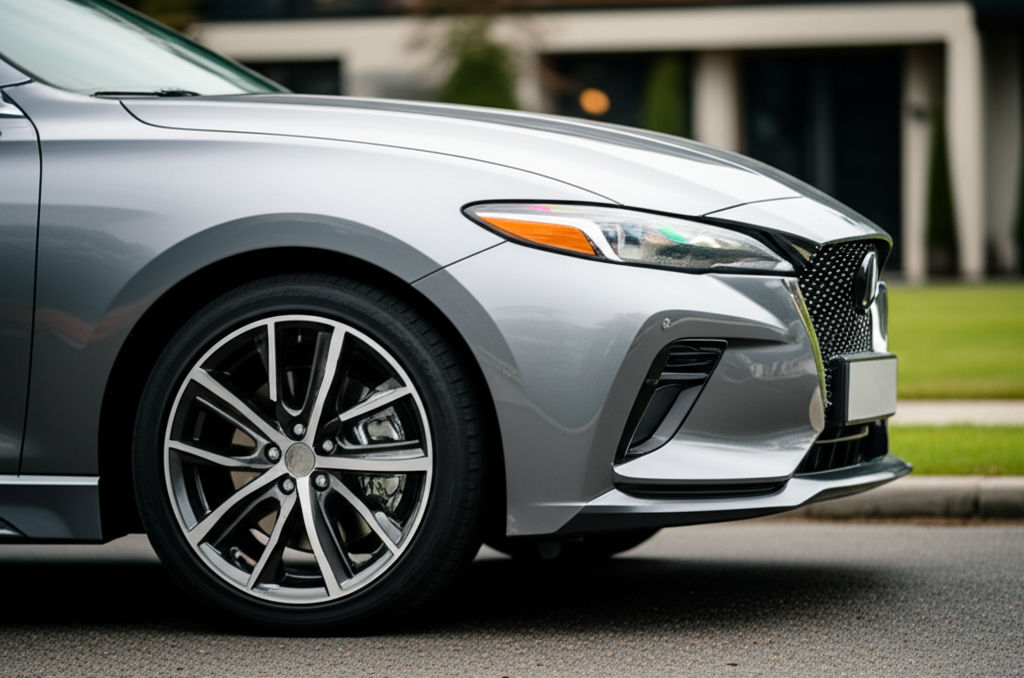
July 25, 2025
Drive Automotive Solutions For Everyday Use
Drive smarter & safer! Get essential automotive solutions, maintenance tips & tech insights to keep your car reliable, efficient, and ready for anything.

August 11, 2025
Salesforce Automotive Cloud Learning Path Guide
Accelerate your automotive career! Learn Salesforce Automotive Cloud with our guide to revolutionize operations, unify data, and enhance customer experience.
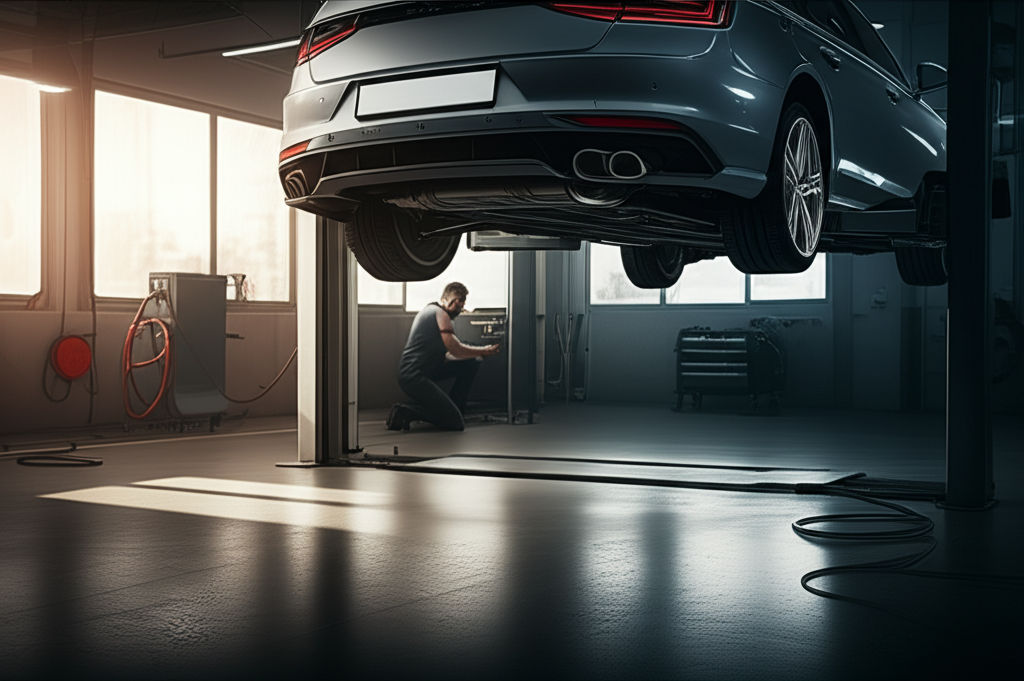
September 6, 2025
A Better Way Automotive Services Near You
Discover "A Better Way" for auto services. Find trusted mechanics, transparent pricing, and top-tier vehicle care near you. Drive with confidence.
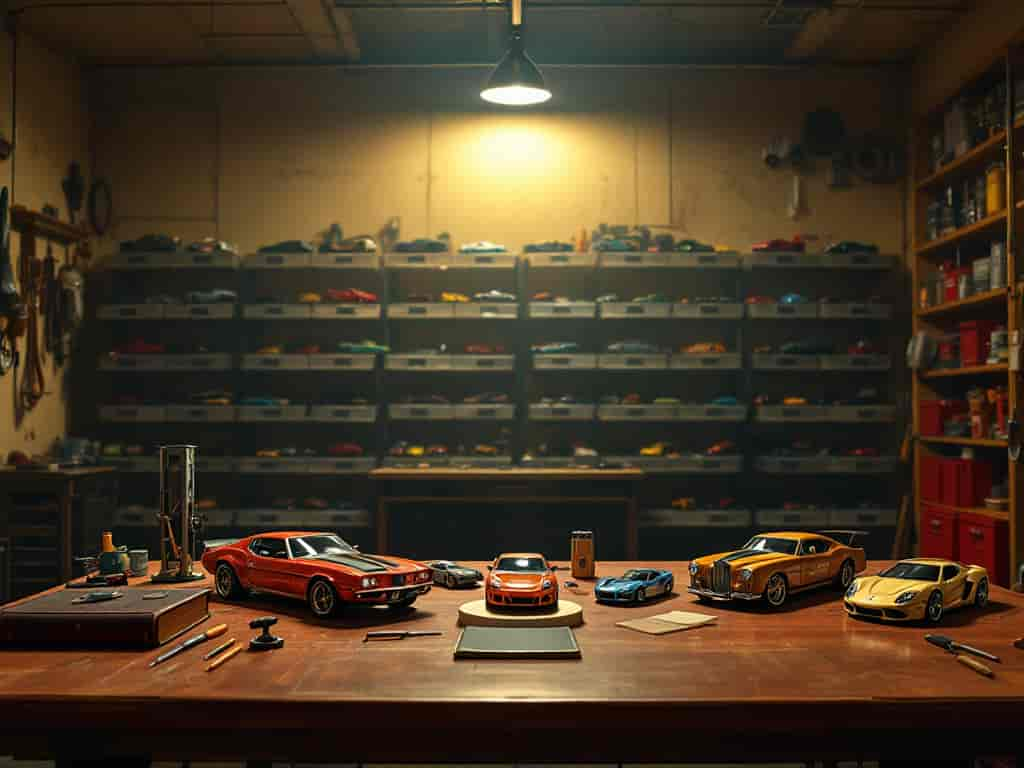
February 12, 2025
Hot Wheels Collecting: Hobby or Smart Investment?
Is collecting Hot Wheels just a hobby, or can it be a smart investment? Learn about rare models, values, and tips to grow your collection.
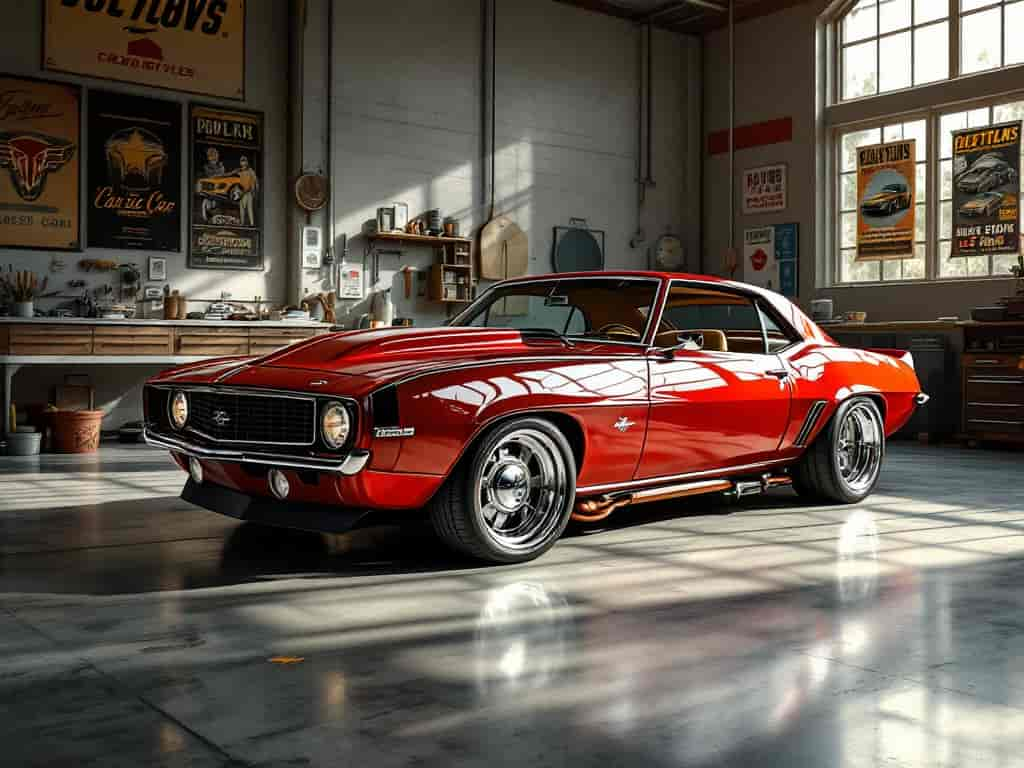
January 31, 2025
Top Tips for Restoring Classic Cars Like a Pro
Want to restore a classic car? Get expert tips and tricks for a flawless restoration. Discover how to bring vintage beauties back to life!

















